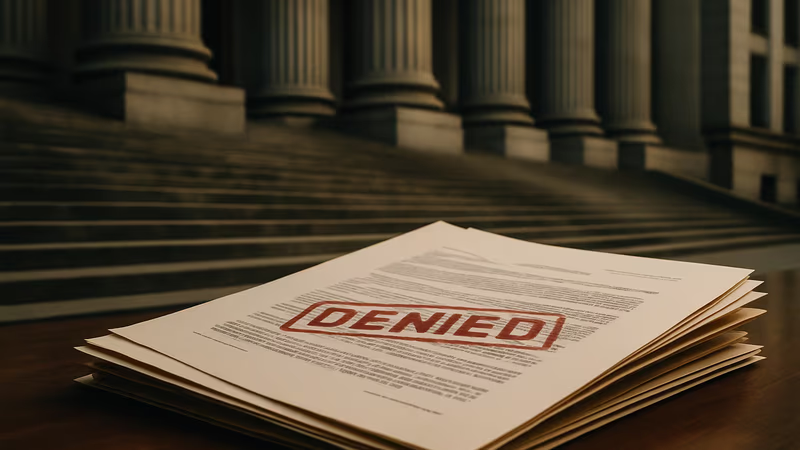Key Takeaway
NY court denies severance motion in no-fault insurance case involving separate accidents, citing lack of prejudice to substantial rights under CPLR 603.
Majestic Acupuncture, P.C. v Interboro Mut. Ins. Co., 2018 NY Slip Op 51785(U)(App. Term 2d Dept. 2018)
“The decision to grant severance (see CPLR 603) is an exercise of judicial discretion which, in the absence of a party’s showing of prejudice to a substantial right, should not be disturbed on appeal (see King’s Med. Supply, Inc. v GEICO Cas. Ins. Co., 14 Misc 3d 136, 2007 NY Slip Op 50232 ). In the instant matter, while the assignors were injured in separate accidents and defendant interposed 50 [*2]defenses in its answer, these two facts, standing alone, do not demonstrate that resolution of the claims for services rendered to plaintiff’s assignors will involve different questions of fact and law. As such, the record does not establish that the Civil Court’s denial of defendant’s motion was an improvident exercise of discretion.”
I swear there must be a different law clerk on the 15th floor who is writing these decisions. But the real losers here will be the court system and the tax payers because now the cost to prosecute these cases decreases and the cost to defend and to process the matters increases. Also, this decision goes against prior Appellate Term rulings and decisions from 3 of the 4 Appellate Divisions.
I wish the Court would be more honest and cite the two Third Department cases that are on point. Instead, they cite an 11 year old Appellate Term case that requires a quantum of proof the Appellate Divisions never held was required to sustain a severance motion.
Now, there is one judge on the panel who lived through the old Sanders Grossman multi-suits as a Civil Court Judge. I recall she was never a fan of the multisuits, but of course we are going back a decade. I await to see if she signs on to these de facto per curiam opinions.
Incidentally, of the Plaintiff produced evidence in their opposition of commonality, i.e., same fee schedule issue, or same medical necessity defense, then I wold hold that severance would be improper. But I think in these PIP actions, the Court is reversing the burden of production.
Related Articles
- Understanding Severance in New York No-Fault Insurance Litigation
- Court rules on claim severance with multiple assignors
- Severance granted despite challenging reality
- When severance is deemed appropriate in no-fault cases
Legal Update (February 2026): Since this 2018 decision, New York’s no-fault fee schedules and reimbursement rates have been subject to periodic regulatory updates, and procedural rules governing severance in no-fault cases may have evolved through subsequent court decisions or regulatory amendments. Practitioners should verify current fee schedule provisions and recent appellate decisions regarding severance standards in no-fault litigation.

